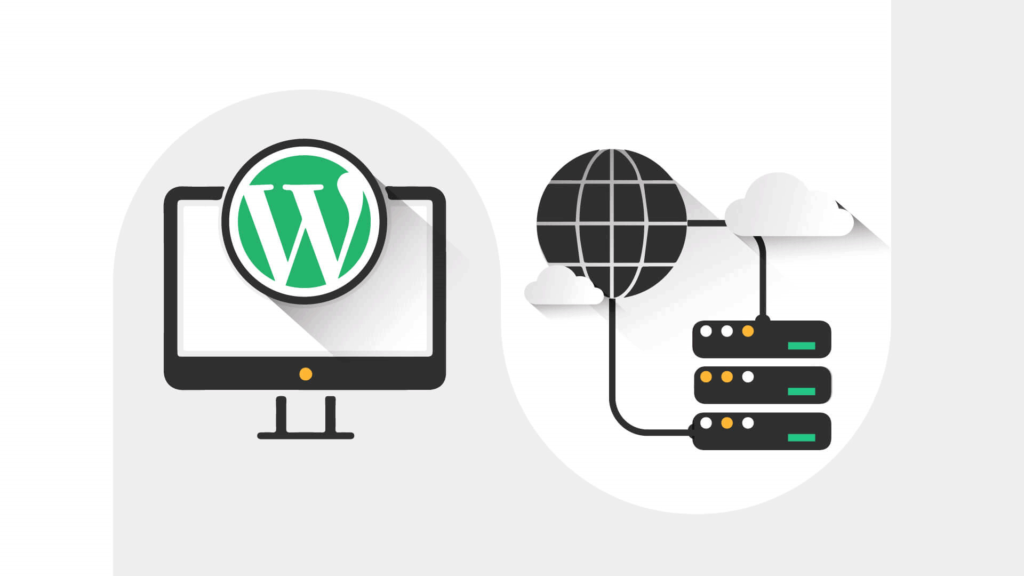Table of Contents
A domain registrar is a company that allows you to purchase and register domain names for your website. When you buy a domain name from a domain registrar, you are actually renting it for a certain period of time, so you need to renew your domain name before it expires; otherwise, you may lose it.
A domain registrar also provides you with a domain management panel, where you can change the settings and information of your domain name, such as the nameservers, the DNS records, the WHOIS data, and others.
Now, choosing the right domain registrar is important because it can affect your website’s performance, security, and reputation. Note that a good domain registrar should offer you the following benefits:
- Fast and reliable service so that your website can load quickly and smoothly for your visitors. Guess you don’t want your website to be down or inaccessible because of the domain registrar’s technical issues or errors, right?.
- Secure and trustworthy service so that your website can be protected from hackers, spammers, and identity thieves.
- Reputable and customer-friendly service that makes your website have a good image and credibility among your visitors.
Remember that there are many domain registrars available, but not all of these registrars offer the same quality of service, features, and prices. Some domain registrars may have hidden fees, restrictive policies, poor customer support, or limited options. Therefore, be careful to research and do some comparisons before you choose a domain registrar for your website.
To help you find the best domain registrar for your needs, consider the following:
1. Check the TLD Availability
2. Compare the Prices and Renewal Fees
3. Look for Domain Privacy Protection
4. Check the Domain Transfer Policy
5. Consider the Additional Services and Features
6. Evaluate the User Experience and Customer Support
7. Trust Your Instincts
Recap
1. Check the TLD Availability
A top-level domain (TLD) is the extension that comes after the dot in your domain name, such as .com, .net, or.org. Different TLDs have different purposes, popularity, and availability. Some TLDs are more common and widely recognized, while others are more niche and specific.
When choosing a domain registrar, check if it offers the TLD that you want for your domain name. Some domain registrars may have a limited selection of TLDs, while others may have a wide range of options. So, compare the prices of different TLDs, as it may vary significantly depending on the domain registrar and the demand for the TLD.
2. Compare the Prices and Renewal Fees
The price of a domain name depends on several factors, such as the TLD, the domain registrar, and the duration of the registration. Typically, you can register a domain name for one year, but you can also choose a longer term, such as two, five, or ten years.
When choosing a domain registrar, ensure you compare the prices of different domain names and the duration of the registration. Also check the renewal fees, which are the fees that you must pay to keep your domain name after the initial registration period expires. Some domain registrars offer low prices for the first year but charge higher fees for subsequent years. Make sure you look for any hidden fees or charges that may apply, such as transfer fees, privacy protection fees, or domain restoration fees.
3. Look for Domain Privacy Protection
When you register a domain name, your personal information, such as your name, address, phone number, and email address, is stored in a public database called the WHOIS database. This means that anyone can access your information and use it for various purposes, like spamming, scamming, or harassing you.
To protect your privacy and security, look for a domain registrar that offers domain privacy protection because this is a service that replaces your personal information with the information of a third-party company, including the domain registrar or a proxy service. This way, you can ensure your information is hidden from the public and avoid unwanted contacts or threats.
4. Check the Domain Transfer Policy
A domain transfer is the process of moving your domain name from one domain registrar to another. Although you may want to transfer your domain name for various reasons, such as finding a better deal, getting more features, or changing your hosting provider,.
But when choosing a domain registrar, check the domain transfer policy and see if it allows you to transfer your domain name easily and without any fees or restrictions. Some domain registrars may charge you a fee for transferring your domain name, while others may impose a waiting period or a lock period before you can transfer your domain name. Also, check if the domain registrar supports the Auth Code, which is a unique code that you need to provide to the new domain registrar to confirm the transfer.
5. Consider the Additional Services and Features
Besides registering your domain name, some domain registrars may also offer additional services and features that can enhance your website and online presence. For example, some domain registrars offer web hosting, email hosting, website building, SSL certificates, DNS management, domain forwarding, and more.
When choosing a domain registrar, consider the additional services and features that it offers and see if it matches your needs and budget. Don’t forget to compare the quality and reliability of these services and features, as it may affect your website’s performance, security, and functionality.
GET SMARTER >>> How to Register a Domain Name
6. Evaluate the User Experience and Customer Support
A domain registrar’s website should be easy to use and navigate, with clear and intuitive tools and interfaces. You must be able to manage your domain name and account settings easily without any hassle and also be able to access your domain name information and records, such as the expiration date, the renewal status, the DNS settings, and the WHOIS information.
When you are considering a domain registrar, evaluate the user experience and customer support that it provides. Look for a domain registrar that has a fast and responsive website, a simple and secure checkout process, and a user-friendly and comprehensive dashboard.
Also, seek for a domain registrar that has a good customer support team, with various channels of communication, such as phone, email, chat, or ticket and check the availability and response time of the customer support team, as well as the quality and accuracy of their answers.
7. Trust Your Instincts
Finally, trust your instincts and go with the one that feels right for you when choosing a domain registrar. Choose a domain registrar that meets your needs and expectations and that you feel comfortable and confident with. Also choose a domain registrar that you can trust and rely on, and that you can build a long-term relationship with.
Choosing a domain registrar is an important decision that can affect your website and online presence. By following these tips, you can find the best domain registrar for your domain name and enjoy the benefits of having a unique and memorable website address.
Recap
A domain registrar is a company that allows you to buy and register domain names for your website. You need to find a reliable and trustworthy domain registrar that can handle your domain name needs.
Some of the important factors to consider when choosing a domain registrar are the pricing and registration period, the domain transfer options, the WHOIS privacy protection, and the customer support availability.
Also, consider the best domain registrars, such as Domain.com, Bluehost, and Hostinger. These companies offer a wide range of domain name extensions, fair and transparent prices, free WHOIS privacy protection, easy domain transfers, and 24/7 customer support.







